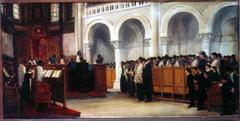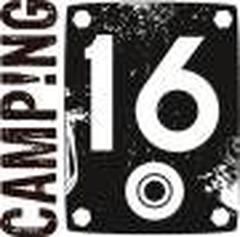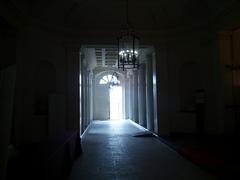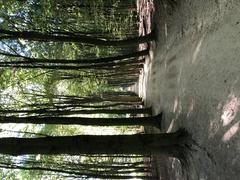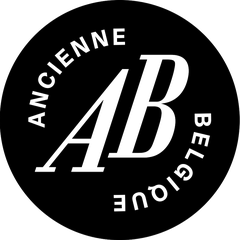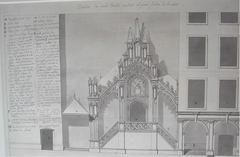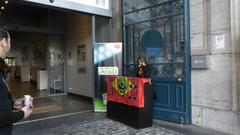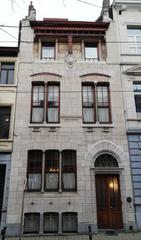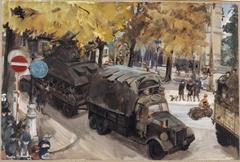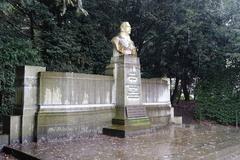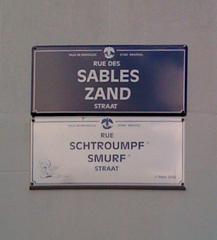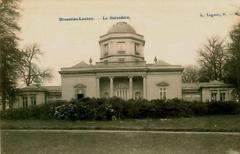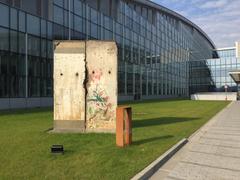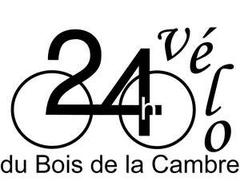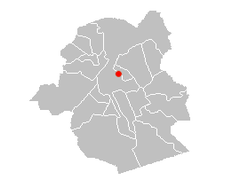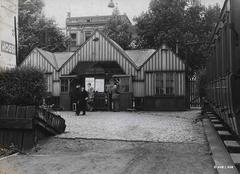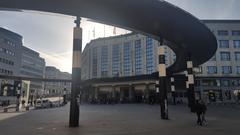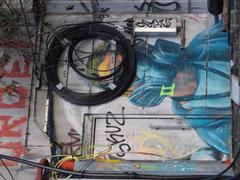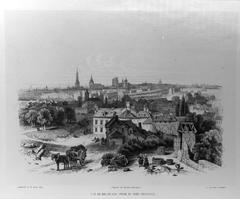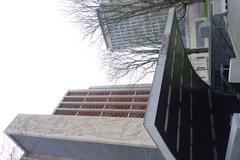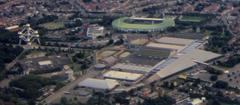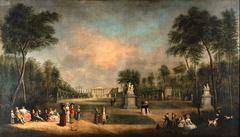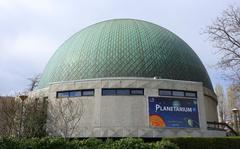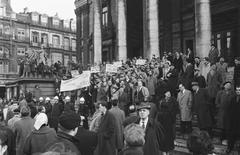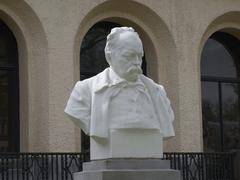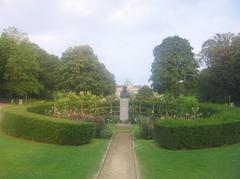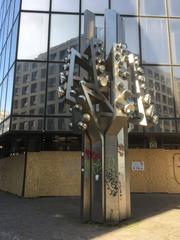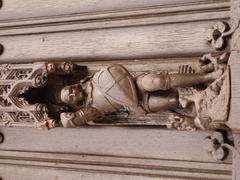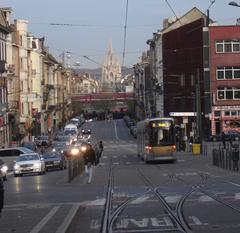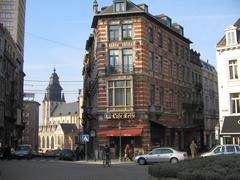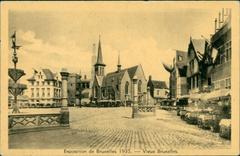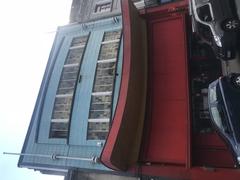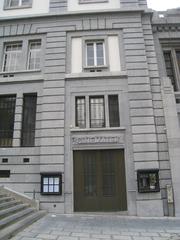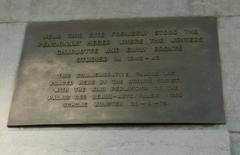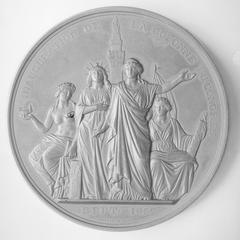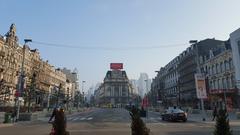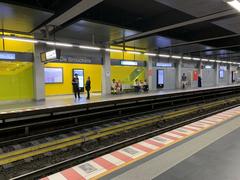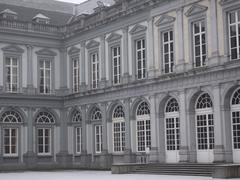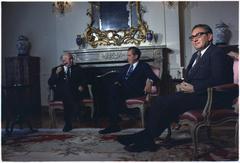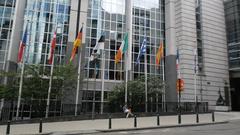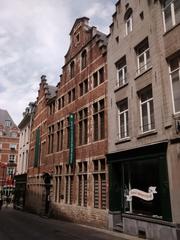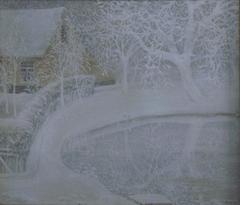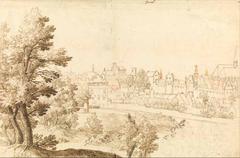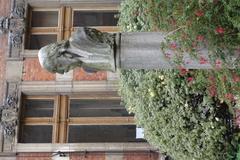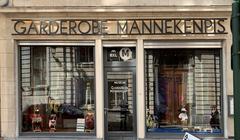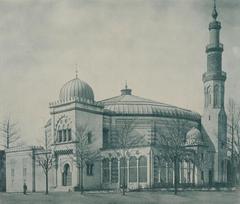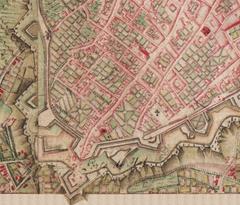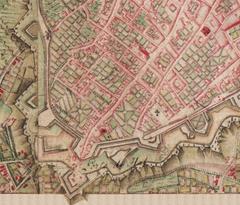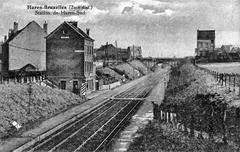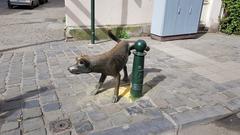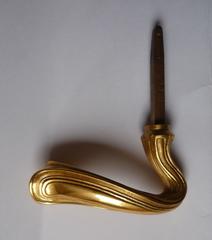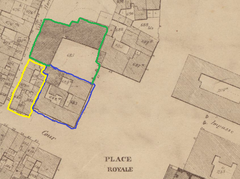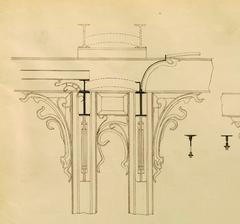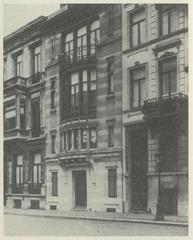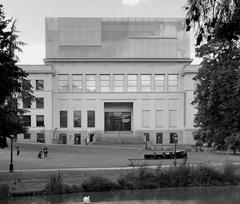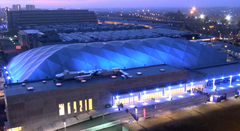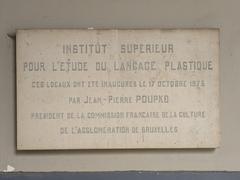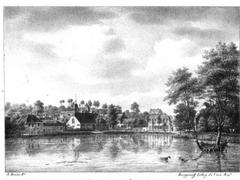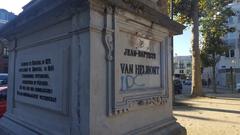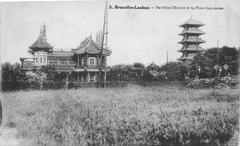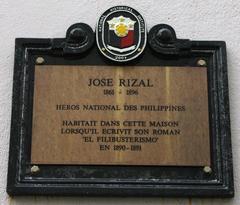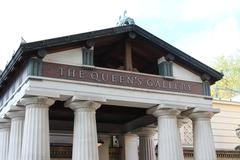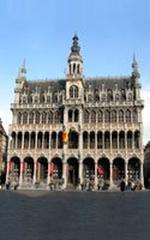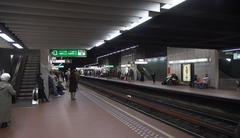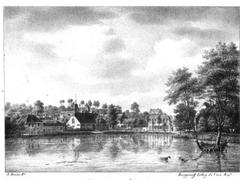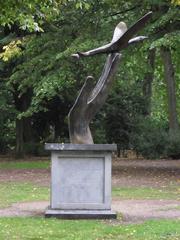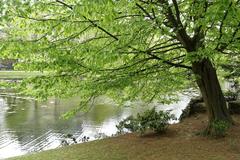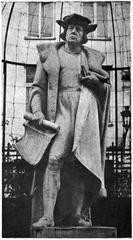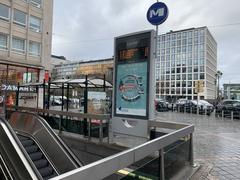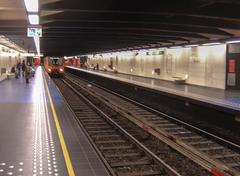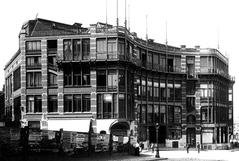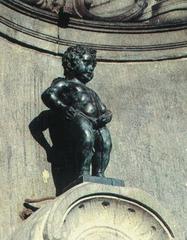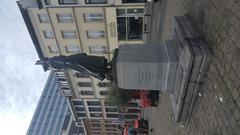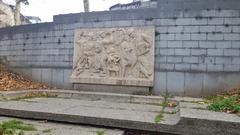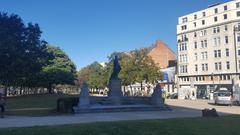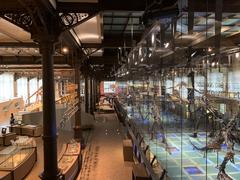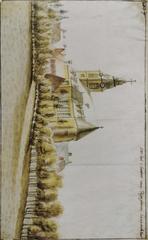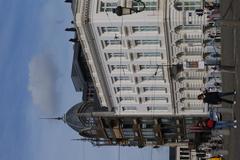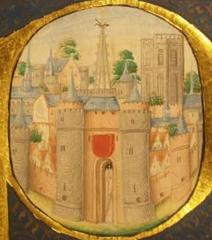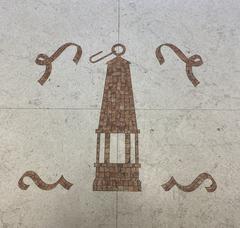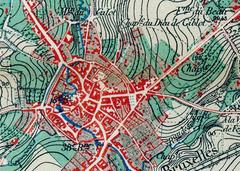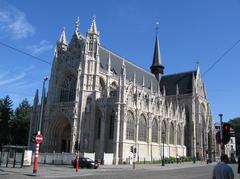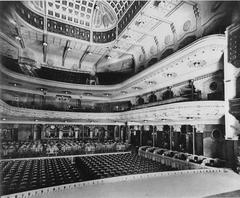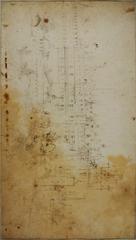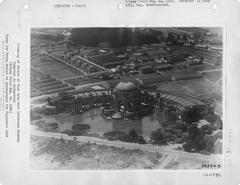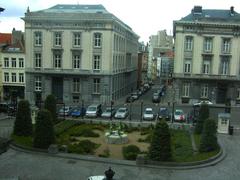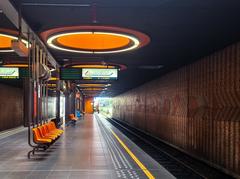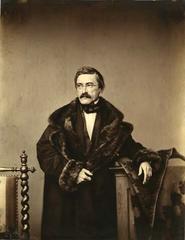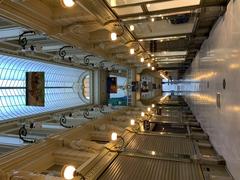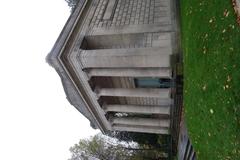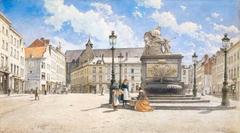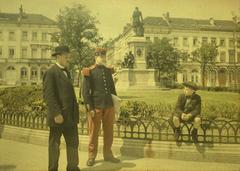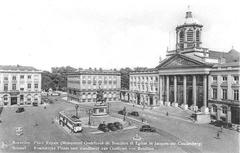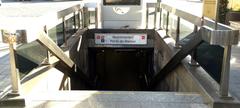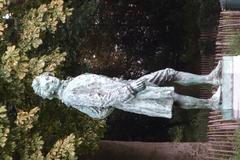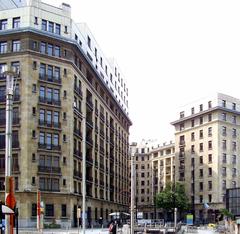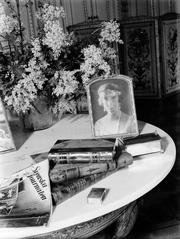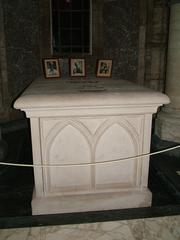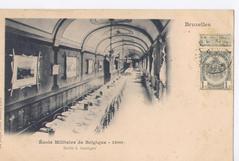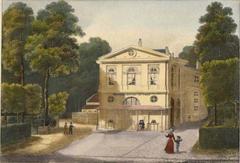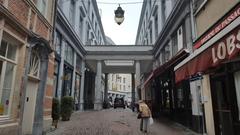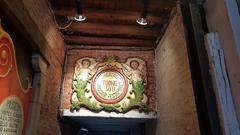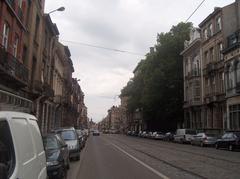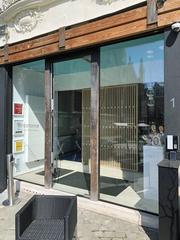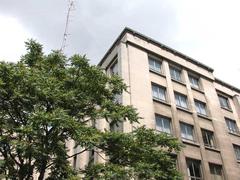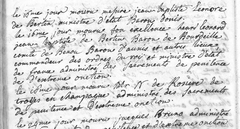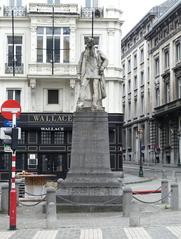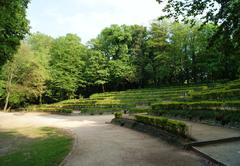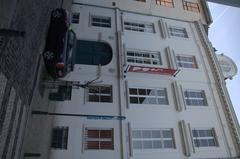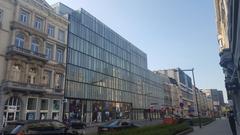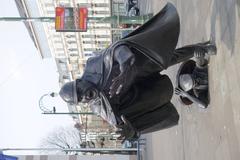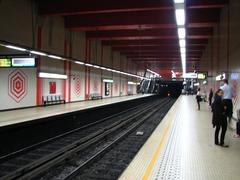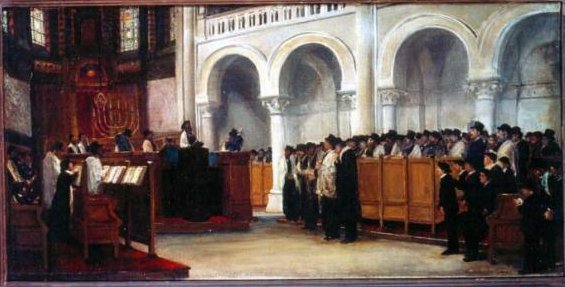
Jewish Museum of Belgium: Comprehensive Visitor Guide
Date: 15/06/2025
Introduction
Located in Brussels’ historic Sablon district, the Jewish Museum of Belgium (Musée juif de Belgique / Joods Museum van België) stands as a prominent institution dedicated to the preservation, study, and celebration of Jewish history and culture in Belgium. Established in the 1980s, the museum offers an immersive exploration into the lives, traditions, resilience, and artistic achievements of Belgian Jewry from the Middle Ages through the Holocaust and into the present day. This guide details the museum’s origins, highlights from its collections, practical visitor information, and tips to ensure a meaningful and respectful visit. Whether you are a history enthusiast, art lover, or curious traveler, the Jewish Museum of Belgium provides a unique window into Jewish culture within Brussels’ vibrant landscape (Jewish Museum of Belgium Official Site, Lonely Planet).
Table of Contents
- Introduction
- Historical Overview
- Collections and Archival Highlights
- The Museum’s Educational Mission
- Visiting Information
- Museum Experience
- Facilities and Practical Tips
- Frequently Asked Questions (FAQ)
- Nearby Attractions
- Conclusion and Further Resources
Historical Overview
Founding and Early Development
The Jewish Museum of Belgium was born out of a need to safeguard Jewish heritage, with its roots tracing back to the late 1970s. A pivotal exhibition in 1979 during Belgium’s 150th anniversary, organized by Baron Jean Bloch and Baron Georges Schneck, galvanized support and led to the creation of the Pro Museo Judaico association in 1981. Initially, the museum operated above the Beth Israel Synagogue on Rue de Stalingrad, collecting artifacts and partnering with governmental agencies to build its foundations.
Relocation and Expansion
In 1989, the museum gained a permanent base at Avenue de Stalingrad, where it hosted numerous exhibitions. A significant milestone came in 1999, when the Belgian government allocated buildings near the Sablon district. The museum officially opened at 21 Rue des Minimes in 2005, enabling the expansion of collections, educational initiatives, and cultural programming.
Collections and Archival Highlights
The museum’s extensive holdings offer a panoramic view of Jewish life and culture:
- Judaica and Ritual Objects: Over 750 ceremonial items, including Torah scrolls, menorahs, and textiles from Belgian Jewish communities.
- Artworks: Approximately 1,250 works by Jewish artists, such as Gérard Garouste and Eddy Zucker, reflecting both religious themes and contemporary expressions.
- Archival Materials: 20,000+ photographs, 5,000 posters, audio recordings, and nearly 300 linear meters of documents, including family records and institutional archives.
- The “Register of Jews”: A digital database of 56,000 individuals, with 45,000 digitized records, invaluable for historical and genealogical research.
- Libraries: Six thematic libraries comprising 25,000 works, including rare Yiddish and Hebrew publications.
These collections not only chronicle religious traditions and community life but also document the profound impact of the Holocaust and the post-war Jewish experience in Belgium (Live the World, JGuide Europe).
The Museum’s Educational Mission
Education and intercultural dialogue are central to the museum’s purpose. Awarded the Democracy and Human Rights Award by the Parliament of the Wallonia-Brussels Federation in 2020, the museum’s programming includes:
- Workshops and Guided Tours: Tailored for schools, families, and adult groups, covering Jewish traditions, holidays, and historical events.
- Holocaust Remembrance: Moving exhibitions and survivor testimonies foster reflection and awareness.
- Temporary Exhibitions: Rotating displays on historical and contemporary topics, from anti-Semitic stereotypes to Jewish artistic innovation (Museum Official Site, Belgium Travel).
- Community Events: Concerts, lectures, and literary evenings engage a broad audience and encourage dialogue.
All exhibits and programs are accessible in French, Dutch, and English, ensuring inclusivity (Live the World).
Visiting Information
Hours
- Tuesday to Friday: 10:00 AM – 5:00 PM
- Saturday and Sunday: 11:00 AM – 6:00 PM
- Monday: Closed
- Public Holidays: Hours may vary; check the official website before your visit.
Tickets
- Adults: €8–12
- Seniors (65+): €5–10
- Students (with valid ID): €5–8
- Children under 12: Free
- Family and group rates available
- Brussels Card holders may enter free or at a discount (Brussels Card)
- Free entry on the first Sunday of each month
Tickets can be purchased online or at the entrance. Advance booking is recommended during busy periods (Happy to Wander).
Accessibility
- Wheelchair accessible: Elevators and adapted restrooms provided.
- Assistance: Museum staff can provide additional support upon request.
- Service animals: Permitted.
- Multilingual materials: Guides and exhibit labels available in French, Dutch, and English.
Security
Due to the 2014 terrorist attack, the museum has heightened security, including bag checks, metal detectors, and armed personnel. Lockers are available for large bags (typically requiring a €1 coin deposit). Photography is allowed for personal use (without flash or tripods) (Lonely Planet).
Location and Getting There
Address: Rue des Minimes 21, 1000 Brussels, Belgium
Phone: +32 (0)2 512 19 63
Official website
- Public transport: Easily accessible by tram (Petit Sablon), metro (Louise/Louiza), and bus.
- Parking: Limited; public transport recommended.
- Nearby stations: Porte de Hal and Sainte-Catherine.
Museum Experience
Permanent and Temporary Exhibits
The museum’s permanent collection traces the evolution of Jewish communities in Belgium, featuring:
- Religious artifacts: Torah scrolls, menorahs, ceremonial textiles.
- Historical documents: Photographs, letters, and records of Jewish families and institutions.
- Holocaust remembrance: Survivor accounts, resistance artifacts (e.g., menorah from Dossin barracks), and multimedia displays.
- Artworks: Pieces by notable Jewish artists, exploring themes of memory, identity, and resilience.
Temporary exhibitions highlight contemporary issues, Jewish art, and contributions of Belgian Jews to society (whichmuseum.com).
Guided Tours and Programming
- Regular guided tours: Available in multiple languages; advance booking recommended.
- Educational workshops: For groups, families, and students.
- Public events: Lectures, concerts, and thematic walks (Visit Brussels).
Facilities and Practical Tips
- Restrooms: Accessible toilets on the main floor.
- Lockers: For coats and bags (bring a €1 coin).
- Museum shop: Books, Judaica, and souvenirs available.
- Café: Not on site, but Sablon district offers numerous options nearby.
- Photography: Allowed without flash; no tripods or selfie sticks.
- Dress appropriately: Out of respect, especially in Holocaust remembrance areas.
- Language: Staff are multilingual; most exhibit information is in French, Dutch, and English.
Frequently Asked Questions (FAQ)
Q: What are the museum’s opening hours?
A: Tuesday to Friday 10:00 AM–5:00 PM, Saturday and Sunday 11:00 AM–6:00 PM; closed Mondays.
Q: How can I purchase tickets?
A: Online in advance or at the entrance. Advance booking is recommended for peak times.
Q: Is the museum accessible for people with disabilities?
A: Yes, the museum is wheelchair accessible and provides assistance upon request.
Q: Are guided tours available?
A: Yes, in several languages. Book in advance for group or specialist tours.
Q: Is photography allowed?
A: Yes, except with flash, tripods, or selfie sticks. Always follow posted guidelines.
Q: What languages are available?
A: French, Dutch, and English.
Nearby Attractions
Combine your visit with other cultural sites in the Sablon and Royal Quarter, including:
- Royal Museums of Fine Arts of Belgium
- Magritte Museum
- Grand Place
- Église Notre-Dame du Sablon
- Place du Petit Sablon
- BELvue Museum
- Bibliothèque Royale
These sites are all within walking distance and offer a rich complement to your exploration of Jewish heritage (Lonely Planet).
Conclusion and Further Resources
The Jewish Museum of Belgium stands as an essential cultural and educational landmark, offering deep insights into Jewish history, resilience, and contributions within Belgian society. Its collections, educational programs, and commitment to intercultural dialogue create a space for remembrance, learning, and reflection. For the most current information on visiting hours, ticketing, exhibitions, and events, always consult the museum’s official website. To enrich your visit, download the Audiala app for audio guides and interactive experiences, and follow the museum’s social media for news and updates.
Embark on a journey through memory and culture at the Jewish Museum of Belgium, and discover the enduring legacy of Jewish communities in Brussels and beyond (Jewish Museum of Belgium Official Site, Happy to Wander).
